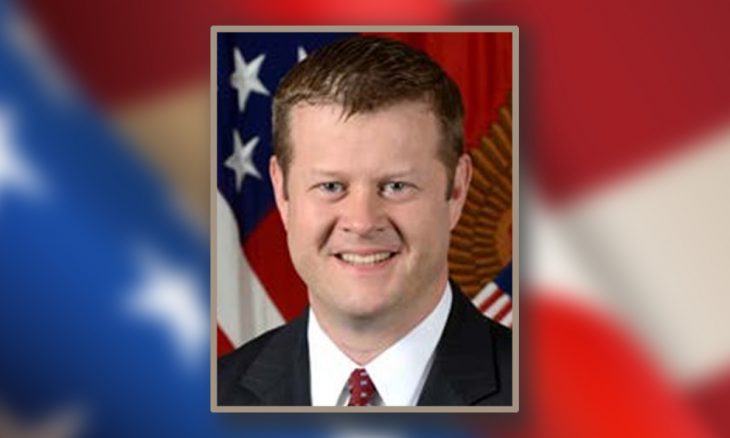Ryan McCarthy
Secretary of the Army
Ryan D. McCarthy was born in 1973 or 1974. He earned an undergraduate degree in history from the Virginia Military Institute and an MBA from the Robert H. Smith School of Business at the University of Maryland. He served as a U.S. Army Ranger with the 75th Ranger Regiment during the U.S. invasion of Afghanistan.
He worked at the Hong Kong and Shanghai Banking Corporation before becoming a professional staff member of the U.S. House Committee on Foreign Affairs. He was a special assistant to former U.S. Secretary of Defense Robert Gates.
He joined the Lockheed Martin corporation and worked on programs including the F-35 Lightning II. He went on to become vice president of the sustainment program for the F-35s.
McCarthy was nominated by President Trump to become the Under Secretary of the Army, and, after confirmation by the Senate, he assumed his position in August 2017. President Trump nominated McCarthy to become the Secretary of the Army in June 2019. He was unanimously confirmed by the Senate and sworn in on September 30, 2019.
He is married and has one daughter.
In the News…
In the wake of nationwide protests over the treatment of black suspects at the hands of police and the public statements from black U.S. military officers both current and former about racism in the ranks, the Army has softened its long-standing resistance to renaming ten U.S. Army bases that honor heroes of the Confederacy of the American Civil War.
The reversal came in a one-sentence statement issued on behalf of the civilian leader of the Army Secretary Ryan McCarthy. “The secretary of the Army is open to a bipartisan discussion on renaming bases,” said an Army spokesperson.
The Army has ten forts named after Confederate officers: Beauregard, Benning, Bragg, Gordon, A.P. Hill, Hood, Lee, Pickett, Polk, and Rucker.
According to a 2015 report, the Army’s top spokesman said, “Every Army installation is named for a soldier who holds a place in our military history. Accordingly, these historic names represent individuals, not causes or ideologies. It should be noted that the naming occurred in the spirit of reconciliation, not division.”









